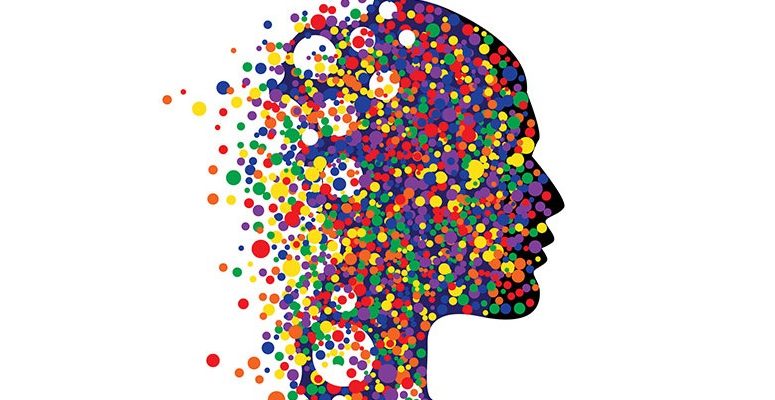
How Does Body Image Affect Our Mental Health?
Firstly, before we discuss how body image affects our mental health, we should define what body image is. Body image is the sum of how a person feels, thinks, behaves and views their body [1]. The way each person visualises and behaves towards their body is unique to everyone and manifests in a variety of ways. The reason for this huge variation of how we behave and think about our bodies is that we are different. We all come from different backgrounds and are influenced by society, which includes family, friends, and media, all of which contribute to how we think about ourselves and what is the ideal body.
We experience feelings of negative body image when the body that we want to have, does not match up with our actual body [2]. This mismatch which leads to negative body image is typically more prevalent and severe in women compared to men [3]. However, this is not to say that men do not also experience negative body image. Negative body image typically peaks in teenage years and is often rated as one of the top three concerns that young girls experience in Australia [4]. Having negative body image has been frequently found to be predictive of mental health problems such as eating disorders [5], depression [6], anxiety [7] and low self-esteem. These mental health problems can also lead to issues in other aspects of life such as a lack of confidence in asserting yourself, avoiding social interactions, struggling to achieve and perform to the best of your academic/occupational ability. It often also leads to very unhealthy eating habits that can cause physical illness.
On the other hand, positive body image is not simply the absence of negative body image. But rather, it is the active acceptance, care and love for our bodies [8]. Having active appreciation for our bodies can lead to important healthy physical changes in our lifestyle. For instance, positive body image is linked to being more physically active, less smoking, alcohol consumption and less negative eating habits [9]. Furthermore, positive body image is linked to higher self-esteem, resilience, overall better mood and greater life satisfaction. For people who are more confident in their bodies, this same confidence influences how they communicate with people and how they feel with social interactions, often feeling that it is easier to communicate with others and that others are more interested in what they have to say. Naturally this in turn further boosts your mood [10]. These elevated moods and confidence help to decrease symptoms of mental health problems such as depression and anxiety. People with positive body image often also become more resilient to negative messages that are displayed in society and media that often lead to more negative feelings about their body e.g. unrealistic portrayals of ideal body shapes [11].
To summarise, body image goes far beyond simply whether we like our bodies or not. The way we view our body and how we feel towards it, can have significant impacts on our mental health, in both positive and negative ways. Therefore, it is important that we look after ourselves so we can try and live a life that is as healthy and fulfilled as possible.
If you or someone you know is experiencing issues with body image, please contact your GP or Psychologist.
You can also contact our friendly staff members if you would like to book in with one of our Psychologists, Counsellors, and Dietitians on (02) 8733 3169 or 0477 118 184.
You may also visit or contact one of the services below for support:
- Butterfly Foundation- Focus on supporting those who suffer from eating disorders or body image issues and their families.https://butterfly.org.au/
Ph: 1800 33 4673 - ReachOut- Provide self-help tools and information for young people, adults and parents.https://au.reachout.com/
- Lifeline- Provides anonymous 24-hour counselling assistance for all ages.https://www.lifeline.org.au/Ph: 131 114
- Kids Helpline- Provides 24-hour counselling for young people aged 5-25. Also provides information for parents.https://kidshelpline.com.au/Ph: 1800 55 1800
References
[1] Tatangelo, G., McCabe, M., & Ricciardelli, L. (2015). Body image. In J. D. Wright (Ed. in Chief, International Encyclopedia of the Social & Behavioral Sciences, 2nd edition, Volume 2 (pp. 735-740). DOI: 10.1016/B978-0-08-097086-8.14062-0
[2] De Oliveira da Silva, P., Miguez Nery Guimaraes, J., Harter Griep, R., Caetano Prates Melo, E., Maria Alvim Matos, S., Del Carmem Molina, M., Maria Barreto, S., & De Jesus Mendes da Fonseca, M. (2018). Association between body image dissatisfaction and self-rated health, as mediated by physical activity and eating habits: Structural equation modelling in ELSA Brasil. International Journal of Environmental Research and Public Health, 15, 1-14. DOI: 10.3390/ijerph15040790
[3] Butterfly Foundation. (2018). Insights in body esteem: A survey of Australians’ experience of body image and its impact on day to day life. Retrieved from https://thebutterflyfoundation.org.au/assets/Uploads/Insights-into-Body-Esteem-ReportPDF5.pdf
[4] Mission Australia. (2018). Youth Survey Report 2018. Retrieved from https://www.missionaustralia.com.au/what-we-do/research-impact-policy-advocacy/youthsurvey
[5] Smolak, L. (2004). Body image in children and adolescents: Where do we go from here? Body Image, 1, 15-28. DOI: 10.1016/S1740-1445(03)00008-1
[6] Brechan, I., & Kvalem, I. (2015). Relationship between body dissatisfaction and disordered eating: Mediating role of self-esteem and depression. Eating Behaviors, 17, 49-58. DOI: 10.1016/j.eatbeh.2014.12.008
[7] Vannucci, A. & Ohannessian, C. (2018). Body image dissatisfaction and anxiety trajectories during adolescence. Journal of Clinical Child & Adolescent Psychology, 47, 785-795, DOI: 10.1080/15374416.2017.1390755
[8] Tylka, T. & Wood-Barcalow, N. (2015). What is and what is not positive body image? Conceptual foundations and construct definition. Body Image, 14, 118-129. DOI: 10.1016/j.bodyim.2015.04.001
[9] Andrew, R., Tiggemann, M., & Clark, L. (2016). Predictors and health-related outcomes of positive body image in adolescent girls: A prospective study. Developmental Psychology, 52, 463-474. DOI: 10.1037/dev0000095
[10] Fenton, C., Brooks, F., Spencer, N., & Morgan, A. (2010). Sustaining a positive body image in adolescence: An assets‐based analysis. Health & Social Care in the Community, 18, 189-198. DOI: 10.1111/j.1365-2524.2009.00888.x
[11] Andrew, R., Tiggemann, M., & Clark, L. (2015). The protective role of body appreciation against media-induced body dissatisfaction. Body Image, 15, 98-104. DOI: 10.1016/j.bodyim.2015.07.005

